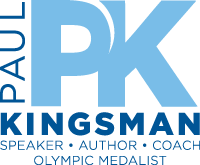Blog
Ideas and advice to move you forward faster.
Is Your Auto-Pilot Sabotaging You?
AdvisorBlast – Quick Tips to Accelerate Your Practice
In this issue: Half the year is over. Do you need to re-plot your thinking and actions for the rest of 2013?

Last week one of my new clients was lamenting how fast the first half of the year had passed and expressing frustration at plans not accomplished.
Looking back over the first 6 months of 2013, how do you feel? How are you progressing toward your year-long goals? Like my client, is there one aspect of your business that you wish you could just blink your eyes and change?
It would be great if lasting change was as easy as an “I Dream of Jeannie” wink. However, when it comes to eradicating ingrained poor work habits, we all know life just doesn’t work like that. Even though tweaking some activities for a week or two might make us feel more productive (and it IS a good start), making more than temporary, cosmetic changes takes dedicated focus, time, and effort. In short, it’s just plain hard work – and it doesn’t always feel great. (You know I’m here to help you get where you want to go in your business, and that includes telling the hard truth!)
The familiarity and comfort of habits are powerful. To fully break a deep-rooted habit or a long-standing routine requires slowing down, concentrating on smaller details, and initially being over-deliberate with executing each step. When I was swimming and needed to adjust my stroke, my coach would have me over-emphasize the new movement he wanted me to use. It felt odd, cumbersome and awkward, yet it was exactly what I needed to do to get more efficient and effective. It was tiring and unfamiliar; suddenly everything I was doing felt terrible, and I would get frustrated, thinking, “Why can’t I just do it like I’ve always done it?”
Moving out of our comfort-zone by over-emphasizing an activity, especially the first few times we do things a new way, takes a lot of will-power and focus. You’ll need to keep the end reason for implementing the change clearly in mind to help motivate you to stick with it. It’s a mistake underestimate the power of a habit and assume you’ll break it within just a few days of doing something new.
Your “auto-pilot” system likes habits. It will tell you not to over-think things, to remember how far you’ve come even with this hindering habit, and that everything is really OK like it was. It will work to convince you that you really can go back to “doing it like you’ve always done it.” Before you start a new course, you must make a deliberate decision to over-ride your auto-pilot thinking. Plot a new direction that will get you to your destination more directly!
What routine habits do you want to re-plot for the last half of 2013?
Do you want to use your time more effectively?
- Maybe that means only checking email once an hour. (Yes, believe it or not, this does work in the real-world!) This takes a lot of focus. Tell yourself being immediately responsive to email does not specifically correlate with being more productive.
- Does it mean being serious about setting and sticking to time-blocks to complete specific tasks? Remind yourself that by focusing intently for 50 minute uninterrupted blocks you will be able to accomplish a significant amount of quality work. Take responsibility for how you use your time. Call distractions what they are – not “useful” market updates that need reading, not “just one” short email from a funny colleague, not “helpful” glances at the markets. If these activities are pulling you away from the work that most needs to be done at that time, they are wastes of your time!
Do you want to sign on more clients?
- How many meetings did you have with prospects the first half of this year?
- How many of those meetings closed in the prospects becoming clients?
- How many meetings will you plan to have between now and Christmas? What do you need to do to connect with prospects to make this number happen?
Mid-way is a great time for a check-up review. What have you been simply permitting to happen so far this year, rather than specifically guiding along a structured path? Identify your two biggest distractions. What routine behaviors or actions need to change to begin addressing these? What’s the very first step to doing this? What will you do about it?
The first half of 2013 is already gone. Let me know if you’d like to talk about how you can make the next six months really count.
To your 2013 success,
Paul
Paul Kingsman
Paul Kingsman is a sought-after expert on how to be distraction-proof. Through his speaking, writing, and coaching, he teaches financial services professionals how to maintain focus and take practical daily steps to successfully grow their businesses and achieve outstanding long-term results. To find out more about Paul and how he can equip you or your team to achieve your own outstanding results, visit PaulKingsman.com.
Search
Recent Posts
- Words That Hamper Rapport (Distraction-Proof Advisor Idea Video #330)
- The Value of Bad Days (Distraction-Proof Advisor Idea Video #329)
- Simplify Surprising & Delighting Clients (Distraction-Proof Advisor Idea Video #328)
- Stop Using This Word (Distraction-Proof Advisor Idea Video #327)
- Don’t Unwittingly Impede Colleagues (Distraction-Proof Advisor Idea Video #326)
Archives
Client Testimonials
"2021 has been a great year for my business, and a lot of that was because of what I learned from you, Paul. You've been an advisor, so you get it! Thank you so much for your invaluable transformative coaching and advice!"
Michelle Glass, Glass Financial Advisors
